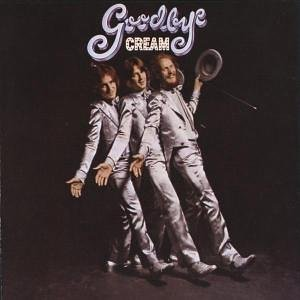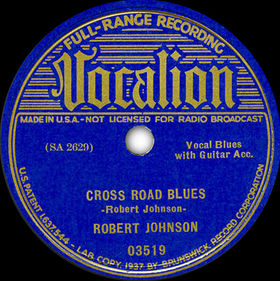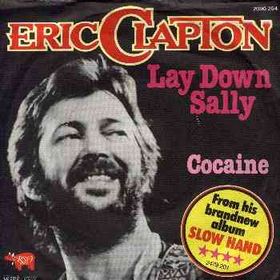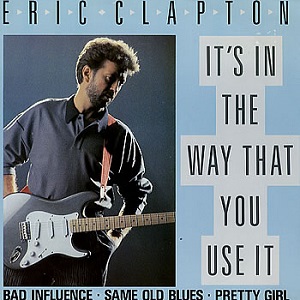
"Layla" is a song written by Eric Clapton and Jim Gordon, originally recorded with their band Derek and the Dominos, as the thirteenth track from their only studio album, Layla and Other Assorted Love Songs (1970). Its contrasting movements were composed separately by Clapton and Gordon. The piano part has also been controversially credited to Rita Coolidge, Gordon's girlfriend at the time.

Wheels of Fire is the third studio album by the British rock band Cream. It was released in the US on 14 June 1968 as a two-disc vinyl LP, with one disc recorded in the studio and the other recorded live. It was released in the UK in the same format on August 9.

Goodbye is the fourth and final studio album by Cream, with three tracks recorded live, and three recorded in the studio. The album was released after Cream disbanded in November 1968.

For Your Love is the first American album by the English rock band the Yardbirds. Released in June 1965, it contains new studio recordings along with previously released singles. The album features some of the earliest recordings by guitarists Eric Clapton and his replacement Jeff Beck.

"Knockin' on Heaven's Door" is a song by American singer-songwriter Bob Dylan, written for the soundtrack of the 1973 film Pat Garrett and Billy the Kid. Released as a single two months after the film's premiere, it became a worldwide hit, reaching the Top 10 in several countries. The song became one of Dylan's most popular and most covered post-1960s compositions, spawning covers from Eric Clapton, Guns N' Roses, Randy Crawford, and more.

"Sunshine of Your Love" is a 1967 song by the British rock band Cream. With elements of hard rock and psychedelia, it is one of Cream's best known and most popular songs. Cream bassist and vocalist Jack Bruce based it on a distinctive bass riff he developed after attending a Jimi Hendrix concert. Guitarist Eric Clapton and lyricist Pete Brown later contributed to the song and drummer Ginger Baker plays a distinctive tom-tom drum rhythm.

"White Room" is a song by British rock band Cream, composed by bassist Jack Bruce with lyrics by poet Pete Brown. They recorded it for the studio half of the 1968 double album Wheels of Fire. In September, a shorter US single edit was released for AM radio stations, although album-oriented FM radio stations played the full album version. The subsequent UK single release in January 1969 used the full-length album version of the track.

"Badge" is a song written by Eric Clapton and George Harrison, and recorded by British rock music group Cream on their final album, Goodbye. Also issued as a single in March 1969, "Badge" peaked at number 18 in the UK Singles Chart and number 60 on the US Billboard Hot 100 chart.

"Bell Bottom Blues" is a song written by Eric Clapton and Bobby Whitlock, and performed by Derek and the Dominos. It dealt with Clapton's unrequited love for Pattie Boyd, the wife of his friend George Harrison, and appeared on the 1970 double album Layla and Other Assorted Love Songs. Issued as a single, backed with "Keep on Growing", the song reached number 91 on the Billboard Hot 100 in 1971. A re-release backed with "Little Wing" peaked at number 78 on the same chart.

Behind the Sun is the ninth solo studio album by Eric Clapton, released on 11 March 1985 by Duck Records / Warner Bros. Records. It is Clapton's first collaborative project with Phil Collins who co-produced the album and played on some of the tracks. While recording the album Clapton temporarily split with his wife.

Strange Brew: The Very Best of Cream is a 1983 compilation album by the British rock band Cream.

Gold is a two-disc compilation album by the British rock band Cream, released in 2005 to help celebrate the band's reunion at the Royal Albert Hall. It was a part of the larger Gold series.

"After Midnight" is a rock song by J. J. Cale, first released in 1966. Eric Clapton later covered it for his eponymous album, released in 1970. Clapton's rendition became a success, prompting Cale to re-record the song for his own 1971 album Naturally. In 1987, Clapton later re-recorded the song for a Michelob beer commercial and then released the re-recording as a single. "After Midnight" has been considered one of Clapton's signature songs throughout his career. Other artists covered the song in later years.

British guitarist and singer-songwriter Eric Clapton's recording career as a solo artist began in 1970, with the release of his self-titled debut, Eric Clapton. Since then, he has released several best selling albums, such as Unplugged (1992), From the Cradle (1994), and Clapton Chronicles: The Best of Eric Clapton (1999).

"Cross Road Blues" is a song written by the American blues artist Robert Johnson. He performed it solo with his vocal and acoustic slide guitar in the Delta blues style. The song has become part of the Robert Johnson mythology as referring to the place where he sold his soul to the Devil in exchange for musical genius. This is based largely on folklore of the American South that identifies a crossroads as the site where Faustian bargains can be made, as the lyrics do not contain any references to Satan.

"Lay Down Sally" is a song performed by Eric Clapton, and written by Clapton, Marcy Levy, and George Terry. It appeared on his November 1977 album Slowhand, and reached No. 3 on the Billboard Hot 100 chart.

"It's in the Way That You Use It" is a song which was written by the English rock musician Eric Clapton in collaboration with The Band's guitarist and composer Robbie Robertson. The song was recorded and performed by Eric Clapton, who released the track under licence of Warner Bros. Records as the second of four singles from his 1986 studio album August in March 1987. The song, which is used as the theme tune to the Martin Scorsese film The Color of Money, was produced by Eric Clapton himself with the help of Tom Dowd, who acted as the assistant producer. The release sold more than 500,000 copies worldwide.

Best of Cream is a compilation album of material recorded from 1966 to 1968 by the rock band Cream, and released shortly after their disbanding. The album was originally released by Cream's U.S. label Atco (Atlantic) Records, and was available on that label during the years 1969–1972. The album was briefly reissued in the U.S. in 1977 by RSO/Polydor Records, to whom U.S. distribution rights for Cream's recordings had reverted by that time. A re-release was pressed in 2014 by Polydor on 180g vinyl.

"Strange Brew" is a song by the British rock band Cream. First released as a single in May 1967 in the UK and July 1967 in the US, it was later added to their second studio album Disraeli Gears. The song features Eric Clapton on lead vocals rather than the usual lead by Jack Bruce. The single peaked at number 17 on the UK Singles Chart in July of that same year. In the UK, it was the last Cream single to be released by Reaction Records.

"Willie and the Hand Jive" is a song written by Johnny Otis and originally released as a single in 1958 by Otis, reaching #9 on the Billboard Hot 100 chart and #5 on the Billboard R&B chart. The song has a Bo Diddley beat and was partly inspired by the music sung by a chain gang Otis heard while he was touring. The lyrics are about a man who became famous for doing a dance with his hands, but the song has been accused of glorifying masturbation, though Otis always denied it. It has since been covered by numerous artists, including The Crickets, The Strangeloves, Eric Clapton, Cliff Richard, Kim Carnes, George Thorogood, The Bunch, and in live performances by The Grateful Dead. Clapton's 1974 version was released as a single and reached the Billboard Hot 100, peaking at No. 26. Thorogood's 1985 version reached No. 25 on the Billboard Rock Tracks chart.


















